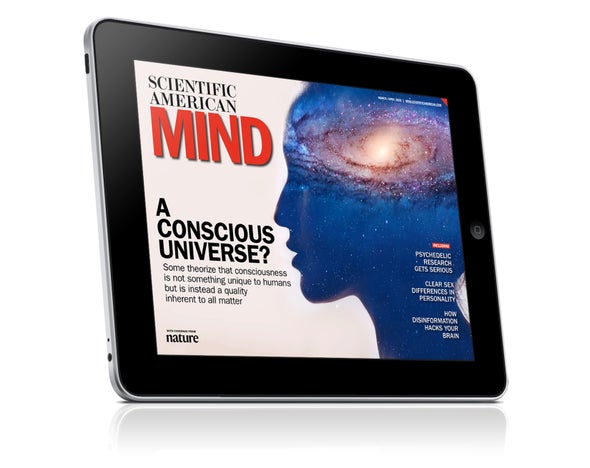One of my advisers in graduate school used to say that what we humans know about the universe and our existence is a paltry fraction of all that is possible to know. I found this equally tantalizing and frustrating and, like so many other scientists, took comfort in the process of science: a way of thinking that helps you narrow down, through experimentation, observation and critical thinking, what is indeed known. But that nagging truth is still there—that we simply know a lot less than we can ever comprehend as a species. Some areas of research butt up against this reality more than others. In our cover story, journalist Gareth Cook speaks to philosopher Philip Goff on the nature of consciousness. It’s a quality that is not measurable by any scientific tool we possess, and so, for now, it lives in the realm of “unknowable.” Yet Goff is able to outline an alternative perspective on consciousness that may give us a different vantage point on our own experience (see “Does Consciousness Pervade the Universe?”).
Speaking of alternative perspectives, health editor Tanya Lewis details in this issue new research examining the therapeutic potential of psychedelics such as magic mushrooms (see “Giving Psychedelics the Serious Treatment”). And our columnist Scott Barry Kaufman takes an unflinching look at a growing pile of data showing stark personality differences between the sexes. Such differences have long been tiptoed around to avoid controversy (see “Taking Sex Differences in Personality Seriously”). Indeed, sometimes what we discover in science can make us uncomfortable. But overall, isn’t it better to know?



